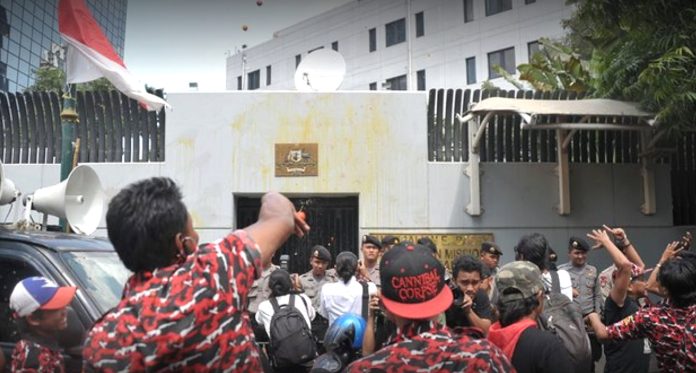DEPARTMENT of Foreign Affairs and Trade, the Australian Federal Government Department tasked with making Australia stronger, safer and more prosperous by promoting and protecting its interests internationally, has released an RFT for the global supply of physical security solutions.
Through this RFT process, the Department says is seeking to establish a panel of suppliers under a deed, who have the demonstrated capability and experience to manufacture, supply and deliver physical security products – and where required, to install these products for DFAT’s missions around the world.
The Department of Foreign Affairs and Trade manages a network of more 100 overseas posts, including Australian embassies, high commissions, consulates-general and consulates. The department has a staff of around 5000 employees, many of which are local staff employed by overseas missions directly, and others are Australian employees based in Australia. There are around 500 Australian diplomats serving overseas. DFAT has an annual budget of $A1.5 billion.
At Security and Government Expo in Canberra last November, DFAT’s Luke Williams said DFAT missions faced unique security environments.
“We work closely with the private sector to provide security solutions for construction projects such as the recently completed Jakarta embassy project,” Williams said. “Whether it be blast doors, forced entry and ballistic rated windows, intruder resistant walls, electronic access control systems, CCTV, walk-through metal detectors, X-ray machines, alarms and locks, all such technologies are the products of private sector innovation and design.

Luke Williams, chief security officer, DFAT
“The Australian government set aside substantial funds to build secure embassies in Jakarta, Bangkok and Nairobi that were especially designed to take into account the latest developments in blast mitigation technology. Bangkok will open in 2017 and Nairobi in 2018. All are unique architectural designs, purpose-built for security mitigation against terrorist attacks. Funds have also been set aside for a new embassy in Washington, as well as the establishment of new posts in Ulaan Bata in Mongolia, Phuket and Doha. All these have and will continue to require extensive private sector involvement.
“Importantly, procurement tenders are not just about one-off construction projects or for use in our buildings,” Williams explained. “Our programme of procurement is substantial and ongoing. At all times, we’re especially interested in value for money solutions – DFAT’s budget must balance many competing priorities and achieving value for money in accordance with government rules is important to us. This is why innovations in technology that help us meet our security requirements in a cost-effective way are so useful to us.”
The physical security RFT closes on July 18, 2017. ♦










